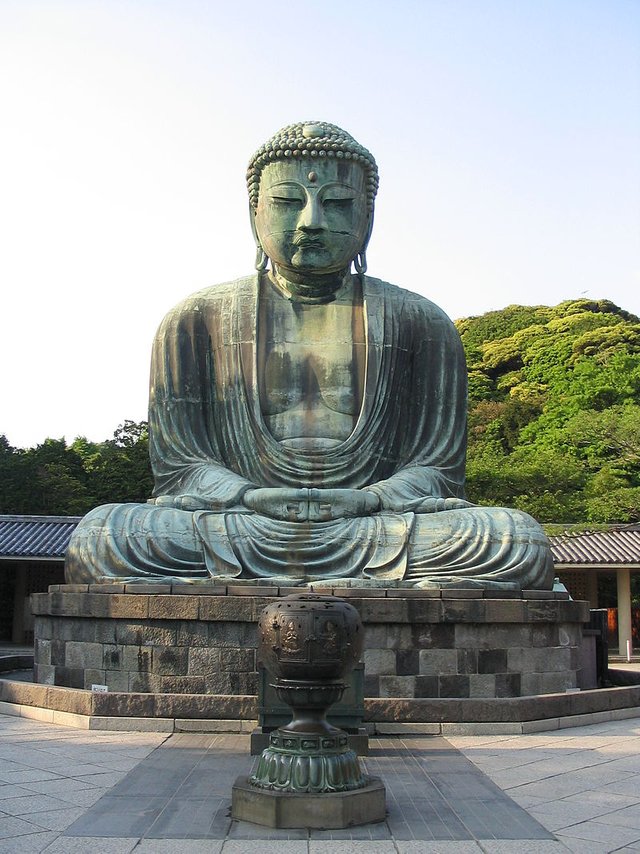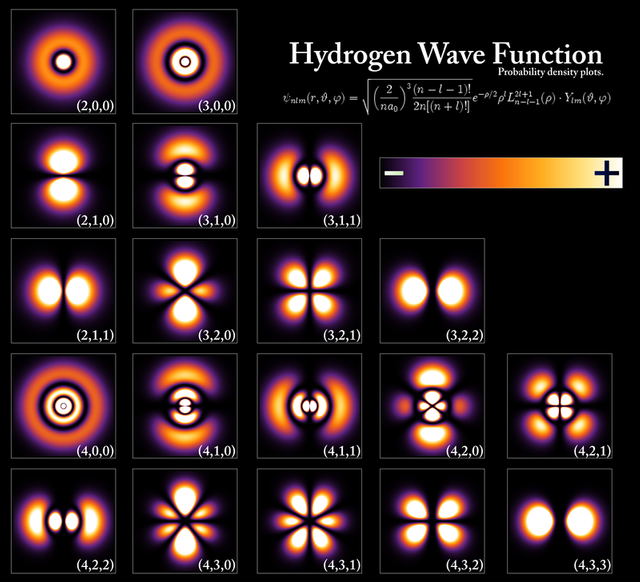You might know me as a film producer and Bitcoin activist, but I am also interested in other subjects.
Buddhist philosophy is one of the topics I find fascinating. One of the most misunderstood concepts of Buddhism is Emptiness, so I would like to explain it today.

Buddha Statue in Japan. Picture by Dirk Beyer - Own Work, CC BY-SA 3.0.
In western languages, emptiness sounds quite negative, like the famous half-empty glass that pessimists always see. If you „feel empty“ you lack meaning or purpose in your life. But the Buddhist concept of emptiness has nothing to do with „feeling empty“.
What it means in simple words: the world is different from what it seems to us. Usually we perceive ourselves as being confronted with a „world out there“. This reality sometimes appears hostile and harsh. And even it is nice and pleasant today, we know how easily we might lose the things that make us happy. So we think we have to accept reality as it is and adapt to it to survive.
But Buddha teaches us that this is not the case. There is no „reality out there“ that exists by itself. All things constantly change and depend on each other. They even depend on our own mind, as they are not separate from it. And this is not hippy talk. This is how modern science sees the world, too.
The objects of the outer world that seem so real to us look quite different when we observe them scientifically. They consist of molecules and atoms, and if you go inside the atoms, you see a lot of empty space with a few tiny particles moving around.
If the atom had the size of a football field, the nucleus would be about the size of a football and the electrons smaller than pinheads. This huge amount of empty space in seemingly solid objects might astonish us, but it is not the emptiness that Buddhism means.
In modern physics the world seems to be even weirder. Protons and electrons do not behave like footballs or pinheads. Actually the electrons do not „fly around“ the nucleus, like planets around the sun. They can only be described by a probability function. They have a „tendency to exist“, but you can only know it by measuring them.

Solution to Schrödinger's equation for the hydrogen atom at different energy levels. The brighter areas represent a higher probability of finding an electron (Source: Wikipedia)
Heisenberg's Uncertainty Principle says that you cannot measure both the speed and the position of a particle. You have to make a conscious decision. When you decide to find out how fast a particle moves, you cannot determine its position. Or vice versa.
That means: the observer is not independent from the objects he or she observes. The process of observation makes a difference. There is no „objective“ reality.
When the laws of quantum physics were discovered in the early 20th century, physicists were shocked how different reality behaves from our everyday experience when you look at it closely. They had to get used to some completely counterintutive ideas.
One example is light, which sometimes seems to behave like waves and sometimes like particles – you would normally think that it has to be either the one or the other. When smashed on each other using lots of energy, subatomic particles may disappear into nothing. Or they suddenly appear from the seemingly empty space of a complete vaccuum – modern physics can be staggering!

Large Hadron Collider at CERN. Picture by Julian Herzog - Own work, CC BY-SA 3.0.
Physicists had to accept that their formulas describe reality in a way that is nearly impossible to grasp for our normal human brain. Surprisingly, the way they see the world comes very close to the insights the Buddha had more than 2500 years ago, when particle colliders were not yet invented.
You do not have to study physics to become a Buddhist. And of course not all scientists share the Buddhist world view. But I think the overlappings between modern science and Buddhism are eye-opening.
Buddha teaches us that we and the „world outside“ are completely interconnected. Everything we think, say and do will inevitably lead to consequences, be it positive or negative ones. Sometimes this Law of Cause and Effect is easy to observe, but sometimes it takes years or even lifetimes for the seeds that we sow ourselves to grow into reality.
In Buddhism there is no god that created our world. We cannot blame anyone else for anything we experience. We are responsible for it ourselves - 100 percent.
This might be scary for some people, but it actually makes us strong. We do not depend on the will of some ill-tempered higher being, nor on fate or luck. We are in the driver's seat ourselves.
When we understand the Buddhist concept of emptiness, we start to see reality like a computer game. You would not be scared of all those monsters that try to hunt and kill you, as you don't take them for real. You understand that everything is just code. So you can enjoy the game, and with the right skills you can even re-progamme it.

Virtual reality headset (source: Pixabay)
This is the attitude that a Buddhist has towards life. You know that nothing is real, but it's more fun to play by the rules. By focusing on meaningful and positive thoughts, words and actions, we sow the seeds for good experiences in the future. By re-programming our mind through meditation techniques we re-programme the world we experience. We stop being just a character in the game. We design it.
So emptiness in the Buddhist sense is not negative or pessimistic at all. Understood correctly, it gives us the power to change ourselves and to change the world.
Good article.
Downvoting a post can decrease pending rewards and make it less visible. Common reasons:
Submit
Brilliant quality piece! Thank you!
Downvoting a post can decrease pending rewards and make it less visible. Common reasons:
Submit
Thanks!
Downvoting a post can decrease pending rewards and make it less visible. Common reasons:
Submit
Hello @aaronkoenig, I just stopped by to let you know that I included this post in my favourite reads on my Steemit Ramble today. The post can be found here
Downvoting a post can decrease pending rewards and make it less visible. Common reasons:
Submit
That's nice, thank you!
Downvoting a post can decrease pending rewards and make it less visible. Common reasons:
Submit
This post has been linked to from another place on Steem.
Learn more about linkback bot v0.3
Upvote if you want the bot to continue posting linkbacks for your posts. Flag if otherwise. Built by @ontofractal
Downvoting a post can decrease pending rewards and make it less visible. Common reasons:
Submit
New user otherwise I would have replied earlier. Beautifully written, I especially like the scientific link. Dr. Chopra's insights as a scientist and spiritual leader link to similar realizations.
Downvoting a post can decrease pending rewards and make it less visible. Common reasons:
Submit
Coming a bit late to the conversation I love what you wrote "We design it." That is soooo good! Thank you :)
Downvoting a post can decrease pending rewards and make it less visible. Common reasons:
Submit
Hi - You should either fix or please explain why there is the strange punctuation in an otherwise excellent piece. Thank you
For example - double commas are everywhere : do not „fly around“ the
Downvoting a post can decrease pending rewards and make it less visible. Common reasons:
Submit